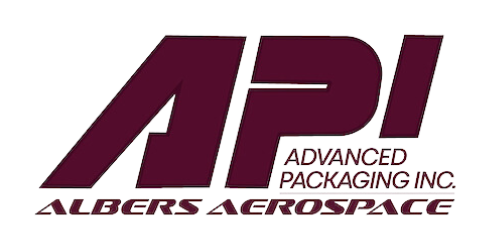
Sometimes, cargo can be strange sizes that don’t fit neatly into prefabricated cases. Rocket fuel pumps are essential elements of aerospace engines for aircraft and spacecraft. But these pumps might not fit into your average case.
Sometimes, cargo can be strange sizes that don’t fit neatly into prefabricated cases. Rocket fuel pumps are essential elements of aerospace engines for aircraft and spacecraft. But these pumps might not fit into your average case. That’s where custom cases can be immensely useful. After all, simply choosing larger cases is not always the answer. Here are some other considerations when designing cases for your payloads.
Custom Case Considerations
What are some considerations to keep in mind when selecting the right custom cases? Remember that rocket fuel is often contained in large and bulky tanks. While transporting these tanks presents their own set of challenges, there are two main challenges to consider for rocket fuel pumps.
Size: Whatever size is chosen for the newly-designed custom case, they must be large enough to provide the cargo adequate protection. At the same time, they can’t be excessively large and take up too much room during transit.
Amount of Foam: Larger cases will also need more foam packed inside to protect the payloads. While foam is not the only type of interior packing material, it can be cut and shaped to fit more snugly around the contents of the new case.
Combining Custom Cases
An elegant solution to many problems is combining available options. When it comes to custom cases can be combined with the cut and weld method. Two standard size cases are created or otherwise procured. Because they are made of plastic, they are easier to deal with. The cut and weld method is so called because the cases are literally cut open and then welded together. Two smaller cases can then form one larger case, depending on the needs of the payload.
To be sure you avoid mistakes, take precise measurements. If measurements are imprecise, it can make it more difficult to shut the lids and ensure seal integrity. Precision is so important because the first step in the creation of these cases is getting an exact cut. Then the edges of the two cases must be prepared for welding. Precise alignments facilitate what are known as butt welds. The process of butt welding forms a stronger joint between the two cases.
Once welding is complete, newly-installed latches on the combined case are inspected to make sure they still close and seal. The new case is also tested to ensure it provides the proper amount of protection it is meant to provide. Whatever type of foam was chosen for the interior of the case, that foam must be tested as well. Testing the foam is intended to verify that the payloads contained within cannot move or shift while the case is in transit.
Rocket Fuel Pumps and Payload Solutions
Standard-sized custom cases cannot always protect every piece of equipment that is needed. As noted above, although larger cases are not always the answer, sometimes they are the only answer. Be aware that larger cases will demand more cargo space, cargo space that might not always be available in transit. Custom cases, especially through the cut and weld method, can overcome that logistical difficulty.
Choose Advanced Packaging, Inc. for Casing Rocket Fuel Pumps
With an extensive experience in making custom demo cases for a range of material and objects, Advanced Packaging, Inc is the best choice for your packaging needs. We have the latest in quality assurance technology to make sure that the casing you need for your product is the best and will get the job done quickly, safely and expertly. If you would like to learn more about our custom packaging, give us a call at 1-888-206-5250 or visit us online. For more time on picking the right custom case for you, follow us on Facebook, Twitter, Google+, YouTube, Flickr and LinkedIn.
